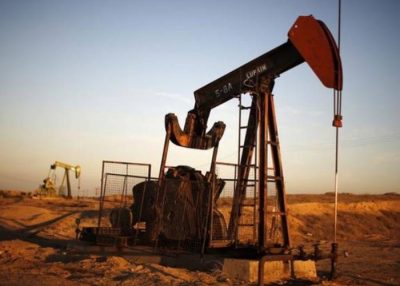Nigeria’s onshore oil output dips as IOCs hold sway in offshore
Oil production from onshore and shallow-water fields in Nigeria is in decline as the bulk of production moves to offshore fields where international oil companies (IOCs) dominate, and analysts say this could impact the country’s oil revenues.
According to data from the Nigerian Upstream Petroleum Regulatory Commission (NUPRC), Nigeria’s total oil output from January to April averaged 22.4 million barrels from offshore, 12.2 million from onshore, and 1.5 million from shallow-water fields.
The trend signals a shift from Nigeria’s traditional onshore oil fields, where production has stagnated due to militancy, pipeline vandalism, and oil theft.
With IOCs dominating offshore production, the Nigerian National Petroleum Company Limited (NNPC), is struggling to maintain its share of the country’s oil output, raising concerns about the long-term sustainability of the country’s oil industry.
Nigeria’s oil and gas production structure is mainly split between JV with NNPC onshore and shallow water and Production Sharing Contracts (PSC) in deepwater offshore.
IOCs began abandoning onshore fields when sabotage of oil pipelines by vandals and oil thieves became a norm. The situation was made worse by NNPC’s inability to pay its share of costs for oil production.
“The decline in JV production is problematic for Nigeria’s economy as it deprives the country of much-needed revenue,” said Ndubuisi Okereke, a lecturer in the petroleum engineering department at the Federal University of Technology Owerri.
“Urgent action is needed to address the issues affecting onshore production and attract investment in the sector to ensure the long-term sustainability of Nigeria’s oil industry.”
According to Okereke, IOCs moved offshore because of the disturbances from Niger Delta youths and other community-related problems, including pipeline sabotage. However, NNPC has made serious progress in stemming the cases of oil theft.
For Uwaye Omijie, a petroleum production engineer at Midwestern Oil and Gas Company, if all production facilities in Nigeria were on land, we will have issues exporting crude oil. That will mean the economy will be down due to low revenue from oil.
In April this year, Nigeria’s average crude oil production fell to 998,602 barrels per day (bpd), the lowest in seven months, according to NUPRC data.
Oil and gas analysts have pinned the recent decline on the shutdown of activities at the Forcados oil terminal, one of Nigeria’s major export terminals, which is a JV. According to experts, the oil terminal has been shut down for two weeks. Also, strike action at the Nigerian unit of ExxonMobil has cut off production.
According to data from NUPRC, total crude oil production from the Forcados oil terminal declined by 28 percent from 6.8 million barrels in January to 4.8 million barrels in April.
“It is more profitable for IOCs to go offshore because the deeper the offshore, the more the stock oil. No community issues, less security treat, and most importantly the easy access to export the crude,” Omijie said.
“These land locations were doing well for Nigeria and were operated by the multinationals, until recently when too many community issues, pipe vandalism, and oil theft emerged. And upon this, you still pay charges to the government.”
Omijie added that despite deep offshore being more expensive, producing crude oil is far more secure. IOCs took advantage of selling their troubled land locations to the government and indigenous companies and concentrate on deepwater production.
Okereke further said that IOC’s professional conduct helps optimise offshore production. However, indigenous marginal field operators will need to up their game in terms of better professional conduct and management of their assets. (BusinessDay)


